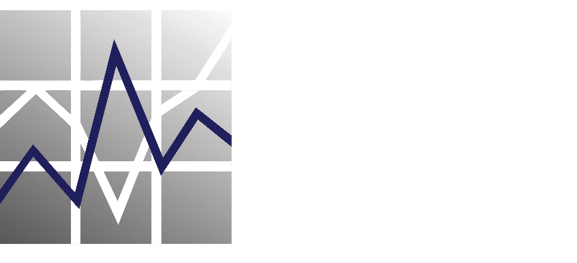
Syndicated B2B Market Research Versus Custom Research
There are typically two primary types of market research reports used by B2B companies when exploring market size, growth, competitive landscape, market segmentation, and other common assessment topics: syndicated research and custom research.
Syndicated Research
Syndicated research, conducted and published independently by a research firm or individual, is commonly sold through the research firm or a research aggregator. The research company or report author determines the topics, scope, questions addressed, and audiences included in the study. Syndicated reports are available on the open market to any buyer. The research company or author funds the initial writing of the study. They own the data and control the report distribution through various license options (single-use, multi-use, enterprise, etc.).
Custom Research
Custom research differs from syndicated in that the research is defined, scoped, and purchased/commissioned by the client. The client owns the data. It is proprietary to a particular client and cannot be resold or reused by the research company. Once purchased, the client has full access to the report and can use/distribute information contained in the report as they wish.
Syndicated and custom market research both serve as valuable tools for companies to better understand markets in which they currently participate and explore new areas of potential growth. We have outlined the pros and cons of each type of research below to determine which kind of research will best meet your needs.
Syndicated Research (Pros and Cons)
Pros
- Cost – The primary benefit to syndicated research is the lower price point relative to custom research. This is driven by the fact that each report can be sold multiple times to various customers. It’s not unusual for an author to sell 20 or more copies of a single report.
- Solid Overview of Market – If written by a reputable author, most syndicated research provides a good overview of the market. Key topics include estimated market size and growth, segmentation schema and associated sizes (overall and by segment), competitive profiles, market drivers and issues, emerging trends, regulations, etc.
- Speed – In most cases, syndicated research reports are already written and readily available – in print or electronically. You can usually download the complete report and have it in hand within minutes. In some instances, authors advertise reports prior to writing them to assess the demand for specific topics. In this case, the report may take several weeks to complete.
Cons
- Flexibility – Since syndicated reports are pre-written, there is no flexibility or customization available. The specific market, segment definitions, covered geographies, competitors, and other areas covered in the report are fixed. If your defined market, segmentation scheme, or geographic regions differ from those in the report, the data may not match well with your needs.
- Inconsistent Quality – As with most products, the quality of the data and analysis in syndicated reports can vary greatly. We once purchased a syndicated report to provide a starting point for sizing a global market for solar panels. Much to our amazement, the estimated global market size in the report was greater than the global GDP. We contacted the author, and he agreed to amend the estimate. However, but the credibility of the entire report was already destroyed. So it is prudent to purchase syndicated reports from a known or respected vendor.
Custom Research (Pros and Cons)
Pros
- Tailored Research – In the case of custom research, the client specifies the research objectives, deliverables, and scope of the project. This ensures that all the data and analysis are consistent with client needs. The control of the outcomes is mainly in the hands of the client.
- Data Ownership – The client owns the data and the insights contained in the report. In many cases, a well-thought-out and executed market research project can be a competitive advantage. “Knowledge is Power” can be a reality with a well-developed and executed custom research project.
- Deeper Insight – Most custom research projects include extensive primary research in the form of in-depth interviews with industry experts, competitors, suppliers, and potential customers. Incorporating these interviews into custom research delivers an added dimension of insight not typically found in syndicated research.
Cons
- Cost – Custom research is traditionally more expensive than syndicated research. However, a custom research project usually has a more significant ROI than off-the-shelf syndicated research.
- Requires Collaboration – This can be considered a pro and a con. A custom research project should be a collaborative effort between the client and the research firm. Working together to define and articulate the desired outcome and insight of the research is paramount in assuring a successful project. A good custom research provider should ask many questions and engage in joint conversations throughout the research process.

